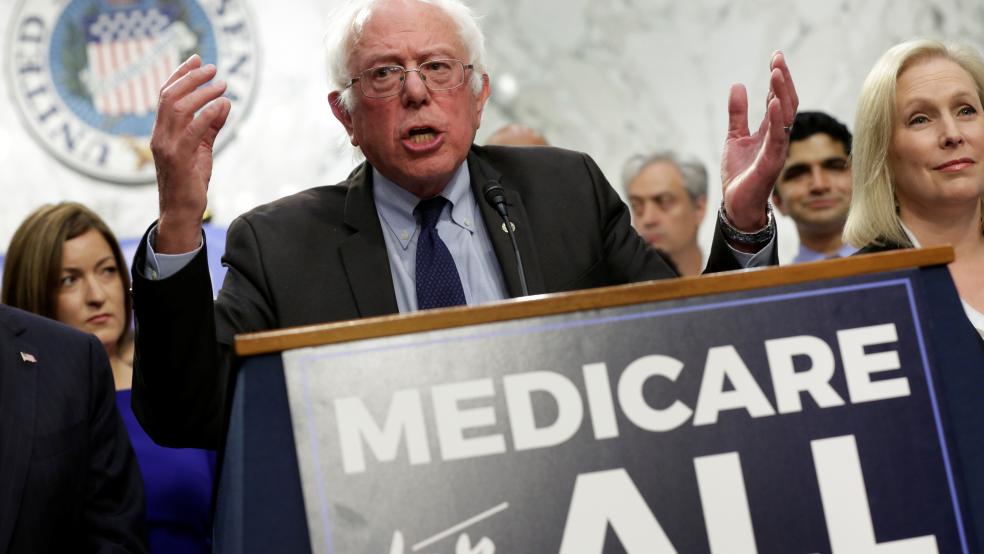Axios’ Caitlin Owens reports that most Democrats running in competitive House races this year “are supporting or at least leaving the door open to some form of ‘Medicare for All,’” — though just what that term means remains an open question.
Some Democrats are pushing for a single-payer, government-run system, while others favor a more gradual or incremental approach, such as expanding Medicare eligibility or creating a public insurance option while leaving existing health plans in place. (The Kaiser Family Foundation just published this useful guide to the various plans that have been proposed.)
“Regardless of which specific policies these candidates support, it's clear that they see a greater federal role in health care as a winning campaign message,” Owens says.
The intraparty debate over such plans is likely to be at the heart of the 2020 election campaign, but a New York audience got a preview of the coming intraparty arguments Thursday night when four Democrats squared off over the idea that progressive populism will save their party.
The debate was organized by Intelligence Squared U.S., a nonpartisan, nonprofit organization. It featured Jeff Weaver, who managed Sen. Bernie Sanders’ (I-VT) 2016 campaign, and Karine Jean-Pierre, a veteran of the Obama White House and senior adviser to MoveOn.org, on the populist side. The centrists were represented by Jonathan Cowan, president of Third Way, and Steven Rattner, an investment manager and Obama’s former “Car Czar.” Unsurprisingly, much of the debate revolved around the Bernie Sanders, single-payer version of Medicare for all.
We’ll spare you the suspense: The moderates won handily. Their case rested almost exclusively on the importance of electability and the notion that a progressive populist agenda including Medicare for all can’t win the support of most voters. Some select quotes from the debate:
- “The evidence is overwhelming that populist ideas will not help Democrats regain the White House or majorities. They might look good on a bumper sticker. But when voters hear about the details, support crumbles,” Cowan said, citing a 2016 Colorado ballot initiative on a single-payer plan that failed.
- “We need to broaden our support geographically, and the way you do that is by being unapologetically on the side of working people in these [red] states,” Weaver argued.
- “Give me an example of one Democrat who's won the White House going down your road. Nobody. Mondale, Dukakis, McGovern got massacred. Massacred,” Rattner said.
- “Half of Americans get their healthcare from their employer. You say to them, ‘You're going to lose your healthcare from your employer, and you're going to become part of government healthcare’ — you think they're going to support that?” Rattner asked.
The big question for the winning centrists — and the party as a whole — remains just what health care idea Democrats, and the swing voters they so desperately want to reach, can coalesce around in 2020 and beyond?





